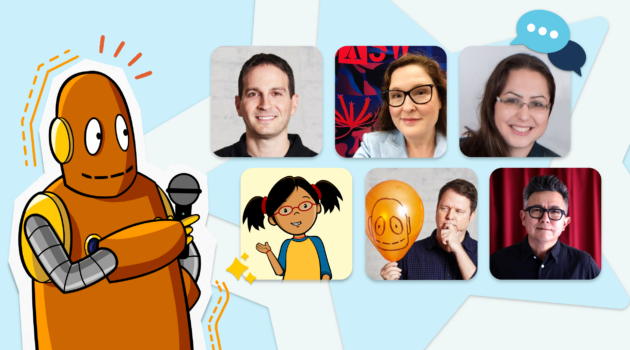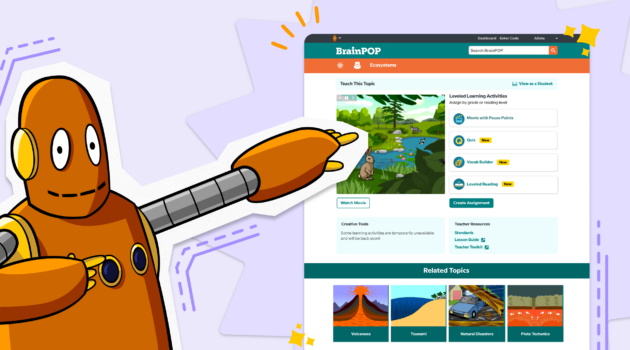News and Updates
4 Must-See Science Sessions at NSTA 2021

The author and guest blogger, Mike Jones, has been an educator for the last 25 years. He is currently a 7th and 8th grade science teacher at Illinois State University’s K–8 Lab School, Thomas Metcalf Elementary. He also works with ISU’s College of Education to host clinical observations, participate in research, and provide professional development. Mike became a Certified BrainPOP Educator in 2014 and is a former BrainPOP Teacher in Residence.
Spring is an exciting time for professional development: Teachers still have time left in the school year to try new technological solutions with our learners before summer break. April and May are also prime time for spring cleaning. Over the course of the school year, teachers like myself often add to our curriculum. But we don’t always consider what we might let go of — and we only have so many hours in a day! I find it helpful to think about which parts of my curriculum are working well for my students and which aren’t. I also reflect on lessons learned and use this information to plan ahead, embedding new and effective practices into my fall lessons.
That’s why the National Science Teaching Association (NSTA) Engage Spring is one of my favorite annual events. This year the conference is virtual, making it more accessible for all teachers. If you’re planning to attend, consider joining the following sessions. They cover essential topics related to teaching and measuring learning in our science classrooms:
SEL During COVID-19: How Can People Help End Pandemics?
Time: Tuesday, April 20 5:45-6:45 PM ET
Speaker(s): Dan Voss (Dallas Center-Grimes High School), Dawn Novak (BSCS Science Learning)
I’m eager to help my students build agency by taking proactive steps to help keep their community safe, and improving their media literacy skills. What excites me about this session is how the presenter connects science and social and emotional learning (SEL) to empower students. These life skills should be ubiquitous in all classrooms, regardless of the subjects we teach. From trauma informed instruction to helping our students feel connected during this time of isolation, we have to make sure they feel safe and cared for before learning takes place. As the saying goes, “We must Maslow before we Bloom.”
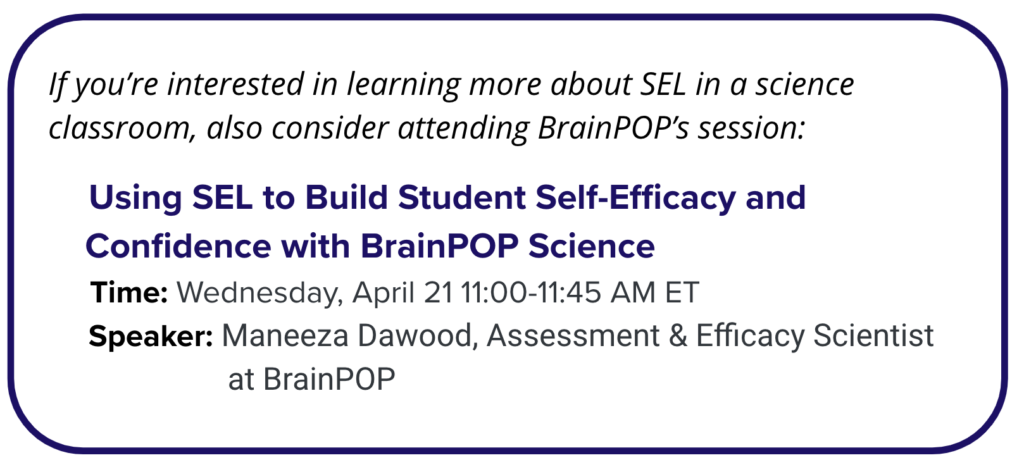
Data Puzzles: Bringing Authentic Data into Classrooms Through Inquiry-Based Instruction
Time: Wednesday, April 21 7:00-7:45 PM ET
Speaker: Jonathan Griffith (University of Colorado Boulder)
The NGSS science and engineering practices emphasize analyzing and interpreting data. I’ve been trying to build data analysis into my lessons in a more integral way. Data is more than just numbers and facts. From the rise of data manipulation tools to careers in data science (e.g., health sensors, cybersecurity, data engineer), data and algorithmic literacy has become an essential skill. How can I streamline this approach to encourage my students to focus on visualizing data beyond making charts and graphs? In this session, Jonathan Griffith will focus on how you can create data-driven activities in your classroom.
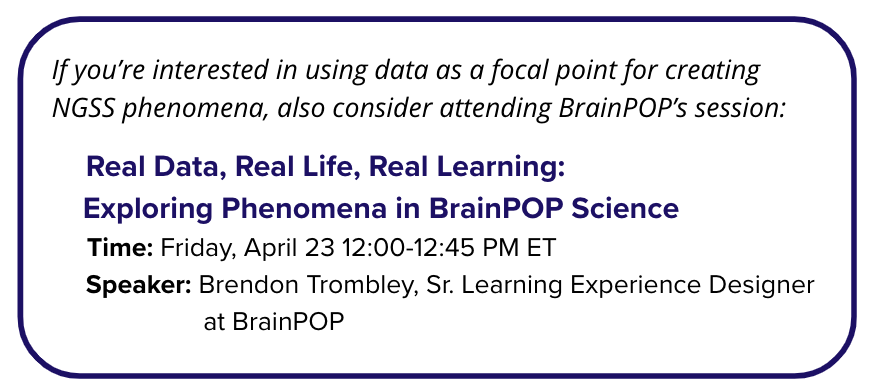
Marketplace Keynote (*sponsored by BrainPOP):
Creating Inclusive STEM Classrooms to Support All Students from Diverse Backgrounds
Time: Friday, April 23, 11:00–11:45 AM ET
Speaker: Jacqueline R. Smalls, Chief Programs Officer, Code.org
Educators need to ensure that our classrooms are inclusive and support rigorous learning for all students. This session has a very timely message: “STEM fields do not currently reflect the diversity in our country. Not every student will need to be a scientist or engineer but every student should be able to envision themselves in a STEM field.”
Keynote Presentation:
Assessing How We Test the NGSS
Time: Monday, May 3, 6:00–7:00 PM ET
Speaker(s): Christopher C. Lazzaro, Director of Science Programs
Implementing an NGSS curriculum can be challenging. The one area where I still see my peers struggle most is designing authentic three-dimensional assessments. We know our students best and can create a variety of authentic assessments to help them build on their strengths. This is missing from standardized tests. Summative assessment alone is limiting unless paired with meaningful feedback along the way to help our students grow. This session will also include a discussion of culturally responsive assessment, which is another important aspect of empowering all students by meeting them where they are.
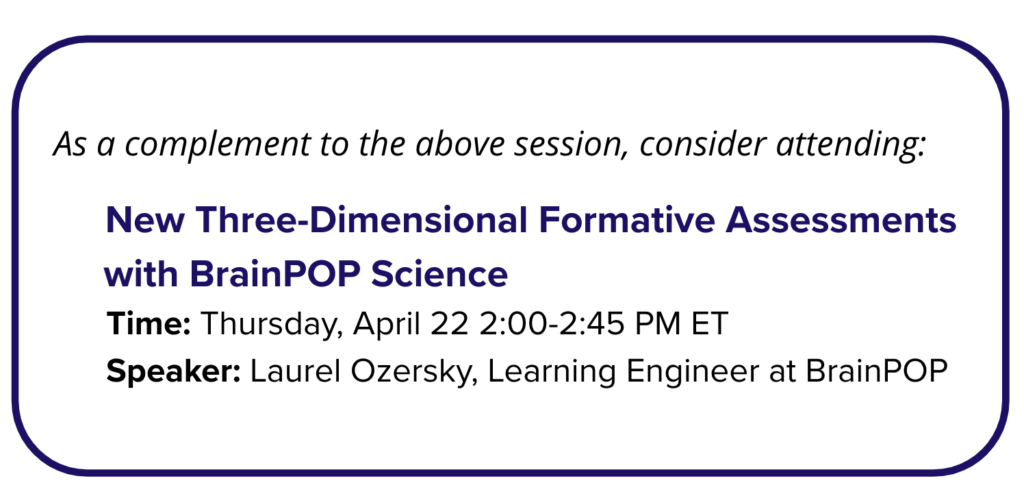
Learn more about BrainPOP Science, a new solution designed to help 6-8th grade science teachers navigate recent shifts in science, engineering, and technology standards, assessments, and learning environments.
*BrainPOP is an official sponsor of NSTA Engage: Spring21.



